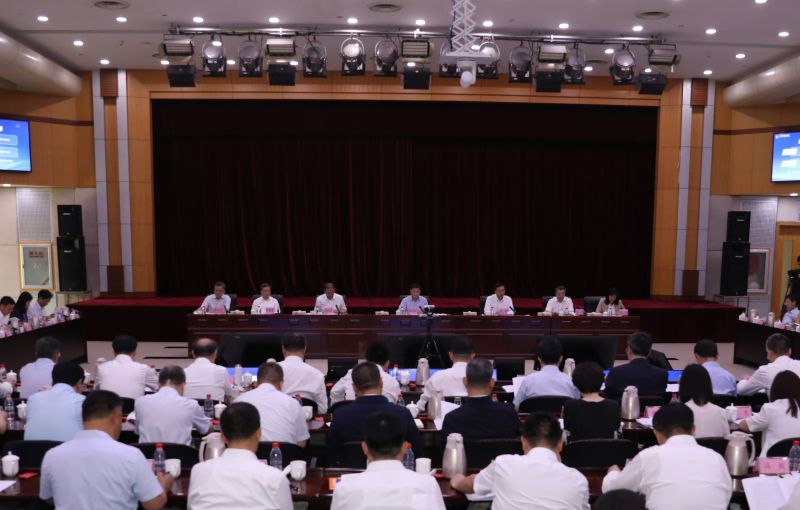

To thoroughly implement the spirit of the meeting held by the Political Bureau of the Communist Party of China (CPC) Central Committee and the arrangements made at the State Council executive meeting and the national video conference on taking concrete measures to ensure deliveries of presold housing projects, the People’s Bank of China (PBOC) held a meeting on June 12 in Jinan, Shandong Province, to advance the work on central bank lending for the support of affordable housing. The meeting discussed the successful practices gained from the pilot operation of the loan support scheme for rental housing, pushed for their wider application, and mapped out work for advancing the implementation of the central bank lending facility for affordable housing. PBOC Governor Pan Gongsheng attended and addressed the meeting. Liu Qiang, member of the Standing Committee of the CPC Shandong Provincial Committee and secretary of the CPC Jinan Municipal Committee, delivered remarks. PBOC Deputy Governor Tao Ling chaired the meeting.
As noted at the meeting, the development of the real estate sector concerns the immediate interests of the people as well as the overall situation of economic performance and financial stability. The central bank lending facility for affordable housing has been established to encourage and guide financial institutions to provide support, based on market principles and the rule of law, for purchases made by local state-owned enterprises at reasonable prices of completed but unsold commodity housing, which will then be resold or rented as affordable housing. It is an important measure taken by the financial sector to implement the requirements of the Political Bureau of the CPC Central Committee on taking a coordinated approach to reduce housing inventory and optimize newly-built housing in order to promote the establishment of a new development model for the real estate sector. It will help reduce the inventory of commodity housing at a faster pace through market-oriented means, increase the supply of affordable housing, and support timely deliveries of presold housing projects and the implementation of the “whitelist” policy.
It was stressed at the meeting that financial institutions and the relevant agencies should thoroughly implement the arrangements made at the Political Bureau meeting and the State Council executive meeting and be keenly aware of the people-oriented nature of real estate-related work. They should broaden their minds and perspectives while taking prudent and solid steps forward. Adopting a government-guided and market-oriented approach, they should draw experience from the pilot scheme introduced earlier, put effort into implementing the policy of central bank lending for the support of affordable housing, and accelerate steps to reduce the inventory of commodity housing. At the same time, it is important to enhance institutional support, strengthen internal and external oversight, and follow the principles of voluntary participation, demand-based purchase, and reasonable pricing. These efforts are aimed at ensuring commercial sustainability, strictly guarding against any increase in implicit local government debts, and effectively preventing moral hazards.
Officials from the municipal governments of Jinan, Tianjin, Chongqing, and Zhengzhou and representatives from Industrial and Commercial Bank of China and China Construction Bank shared their pilot practices. The participating cities and financial institutions had in-depth exchanges on advancing the implementation of the central bank lending facility for affordable housing.
The meeting was held through video links. Present at the meeting in Jinan were Fan Shaojun, vice mayor of Tianjin, Shang Kui, vice mayor of Chongqing, Yu Haitian, mayor of Jinan, Cao Jinbiao, chief economist of the Ministry of Housing and Urban-Rural Development, officials from the relevant departments of the PBOC and the National Financial Regulatory Administration, representatives from China Development Bank, Agricultural Development Bank of China, Industrial and Commercial Bank of China, Agricultural Bank of China, Bank of China, China Construction Bank, Bank of Communications, and Postal Savings Bank of China, and officials from some municipal governments. Attending remotely were representatives from other policy banks and national commercial banks, as well as officials from some other municipal governments and PBOC branches in cities at or above the prefecture level.



